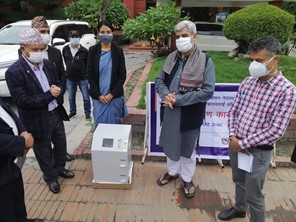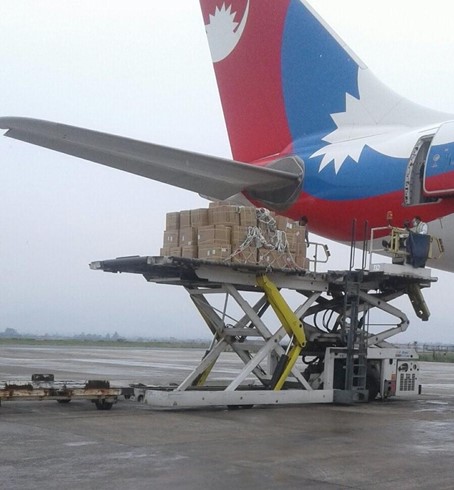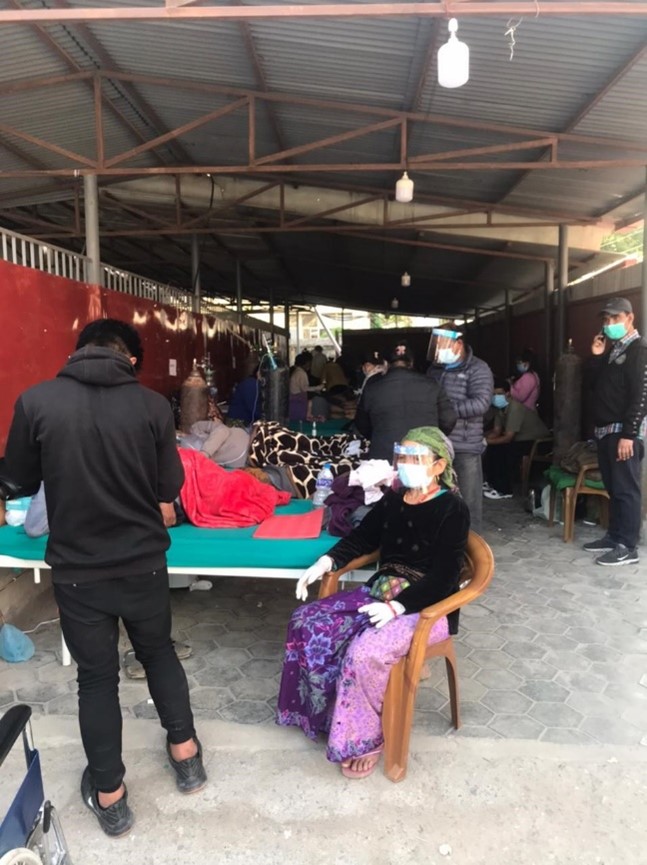August 29, 2021
The Unica Foundation focuses on sustainable technical-oriented projects in Nepal, but in emergency situations it also makes its financial resources available for other purposes. When Nepal was confronted with the large-scale consequences of COVID-19 due to the delta variant this summer, local partners were able to quickly access oxygen supplies, partly thanks to a contribution from the Unica Foundation.
While the first corona wave had relatively mild consequences for Nepal, the country bordering India was hit hard this summer when the delta variant advanced. In the capital Kathmandu, hospitals with capacity for COVID patients became heavily overloaded in no time, partly due to a lack of sufficient oxygen supplies. The Unica Foundation was approached to make a financial contribution to a large-scale procurement program in which oxygen machines were purchased. These so-called oxygen concentrators filter pure oxygen from the air around us and of course make it easier for COVID patients to breathe.
The Karuna Foundation, supported from the Netherlands, is active as a local NGO in Nepal and coordinated the purchase and distribution of the oxygen equipment. Thanks to many donors, the Unica Foundation being one of them, the foundation was able to purchase 225 devices and distribute them to government and semi-government hospitals in Nepal that serve the local population. This significantly expanded the capacity for treating patients with the coronavirus.
Fortunately, the overload on the hospitals in Nepal was short-lived and the situation in the country has now stabilised. The equipment is of course also valuable for Nepalese hospitals in the future. Since vaccines are only available in small numbers in Nepal, the risks of a new wave of corona infections unfortunately remains real for the time being.
The emergency aid the Unica Foundation contributed to is comparable to the support the foundation provided in 2015, when Nepal was badly hit by an earthquake. In the aftermath of that crisis, it also supported the Karuna Foundation in purchasing and distributing 5,000 solar-powered lamps, which were hardly needed at that time because electricity was no longer available in many areas due to the earthquake.












